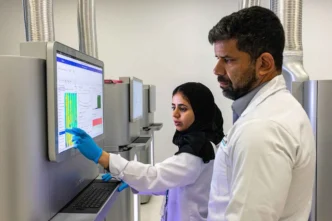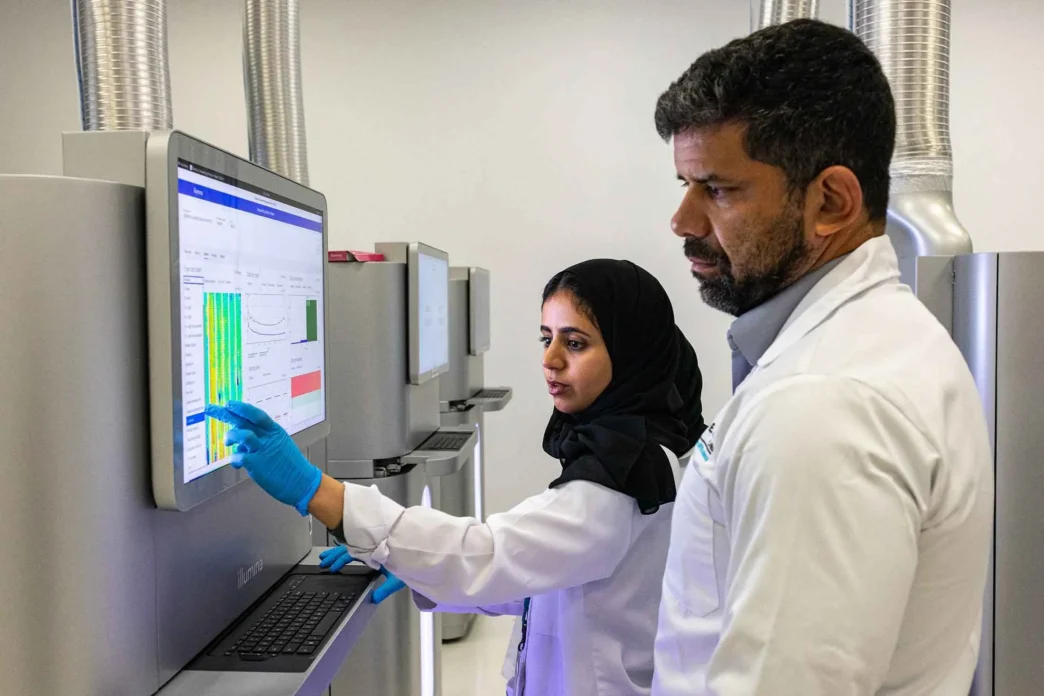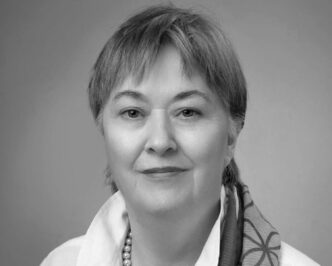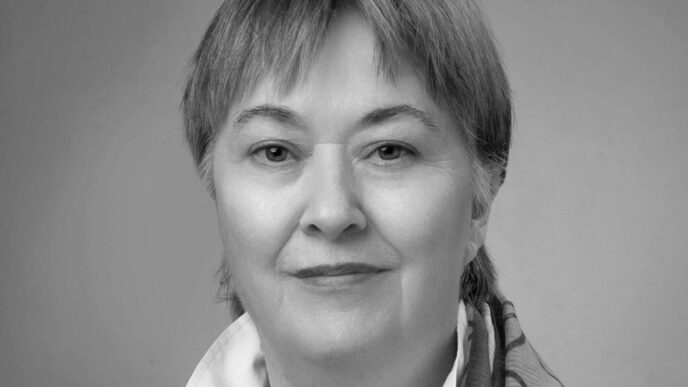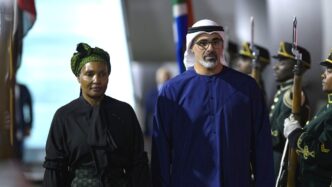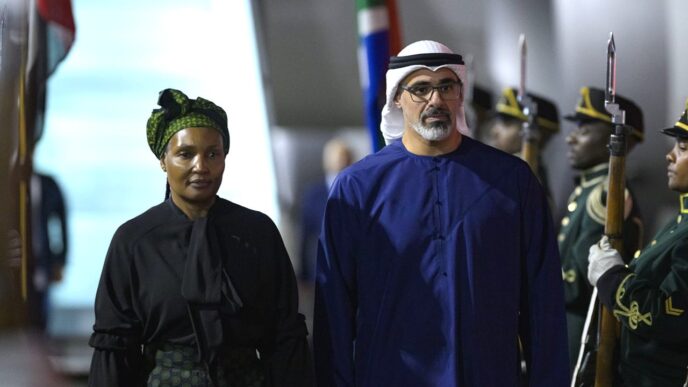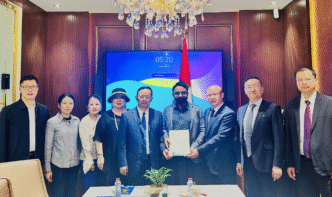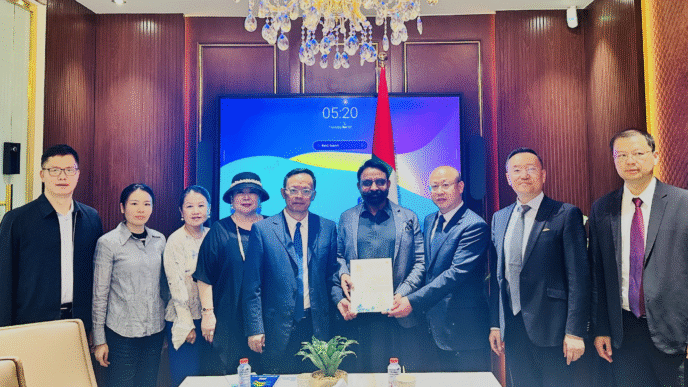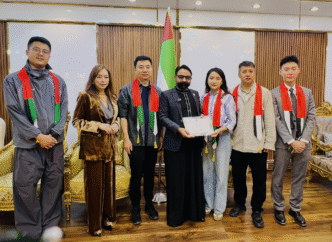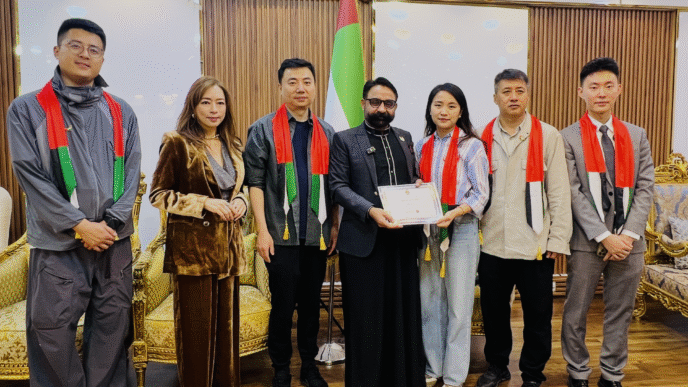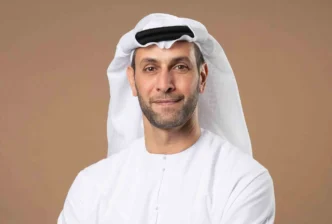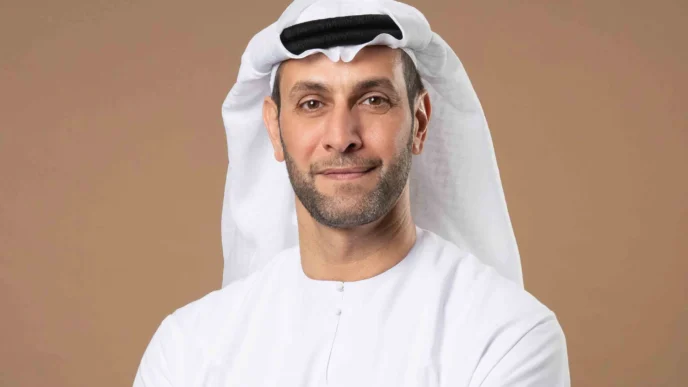In the heart of the Arabian Peninsula, where innovation and ambition often go hand in hand, the United Arab Emirates (UAE) is on the brink of achieving something no other nation has accomplished at such scale: sequencing nearly the entire genome of its citizen population. What began as a visionary public health initiative has evolved into one of the most advanced genetic mapping programs on Earth—blending science, data, and national strategy in ways that are both pioneering and controversial.
The UAE’s genome project, launched in 2019, is nearing completion, with officials reporting that almost all Emirati citizens’ DNA has been sequenced and integrated into a secure national biobank. The goal is nothing short of revolutionary: to use genomic data to predict, prevent, and personalize healthcare—potentially eliminating hereditary diseases and reshaping how medicine is practiced in the 21st century.
But as the UAE races ahead, questions around privacy, ethics, and the implications of state-level genetic surveillance loom large. Is this the dawn of a new era of precision medicine—or the beginning of a global debate about how much a government should know about its citizens’ biology?
A Vision Rooted in National Ambition
The UAE Genome Program is the flagship of the country’s broader plan to transform healthcare from reactive to predictive. Overseen by the Department of Health – Abu Dhabi and supported by a consortium of local and international research institutions, the initiative aims to decode the entire genetic makeup of every Emirati citizen and store it in a protected national database.
The scale of the project is immense. Over the past five years, tens of thousands of participants have provided DNA samples through hospitals, clinics, and mobile collection units. Using advanced sequencing technology from partners such as Illumina and Oxford Nanopore, scientists have built a comprehensive genomic reference map of the Emirati population—one that accounts for its unique ethnic and genetic diversity.
“This is a defining step toward realizing our vision of preventive, precision-based healthcare,” said a spokesperson for the UAE Genome Office. “By understanding the genetic blueprint of our people, we can predict diseases before they occur and ensure a healthier future for generations to come.”
Why the UAE Moved Faster Than Anyone Else
The UAE’s rapid progress can be attributed to several key factors: strong central leadership, streamlined regulation, and a culture of national mobilization for innovation.
While other countries have attempted similar projects—the UK’s Genomics England, the All of Us initiative in the U.S., and Iceland’s deCODE genetics—none have reached the same near-complete coverage of a national population. The UAE, with a smaller and more homogenous citizen base of roughly 1.2 million people, was uniquely positioned to move quickly.
Moreover, the country’s top-down governance model allowed it to integrate healthcare systems, data policies, and research infrastructure seamlessly under one umbrella. Citizens were encouraged to participate as part of a patriotic duty—an investment in the health of the nation rather than a private medical choice.
From Data to Diagnosis: The Promise of Precision Medicine
The immediate goal of the UAE’s genome program is to build a predictive healthcare system—one capable of identifying individuals at risk of genetic disorders long before symptoms appear. The implications are profound.
Genetic diseases such as thalassemia, cystic fibrosis, and certain metabolic disorders are more prevalent in the Gulf region due to historical patterns of consanguinity. With a comprehensive genetic database, doctors can screen for such conditions early, tailor treatments, and even guide couples in family planning.
In the long term, the UAE hopes to become a global hub for genomic medicine—attracting biotech firms, pharmaceutical companies, and AI researchers eager to develop targeted therapies based on the country’s unique genetic data.
“We are not just collecting DNA,” explained Dr. Fatma Al Kaabi, a leading geneticist involved in the project. “We are building the foundation for a future where every prescription, every diagnosis, and every medical decision is informed by your genome.”
The Ethical Frontier: Privacy, Consent, and Trust
Yet the program’s success has not come without scrutiny. Human rights advocates and privacy experts have raised concerns over how such sensitive genetic data might be used—or misused.
Unlike in Western countries, where genetic databases are often voluntary and heavily regulated by independent ethics boards, the UAE’s project operates within a centralized, state-managed framework. While officials emphasize that data is anonymized and encrypted, skeptics question whether participants truly have autonomy over how their information is stored and accessed.
“The UAE’s model shows what can be achieved when a government mobilizes science at scale,” said Dr. Sophie Rawlins, a bioethicist at King’s College London. “But it also raises profound questions about consent, data ownership, and the balance between public good and personal privacy.”
Authorities maintain that the database is protected under strict data protection laws, with limited access granted only to certified researchers and healthcare providers. Still, in an age of digital vulnerability, the possibility of leaks—or state overreach—cannot be entirely dismissed.
Global Implications: A Template for the Future?
The UAE’s achievements are being closely watched by policymakers and scientists worldwide. If successful, the model could inspire similar efforts in other small or medium-sized nations seeking to modernize healthcare systems.
Countries like Qatar, Singapore, and Saudi Arabia are already investing heavily in national genomic programs. Yet few have reached the UAE’s level of integration between government policy, clinical application, and citizen engagement.
At the same time, the UAE’s approach highlights a growing divide in how societies view genetic data. In democratic systems, such programs often stall amid privacy debates and bureaucratic red tape. In centralized systems, they advance rapidly—but with less public scrutiny.
“The UAE is effectively writing the playbook for national genomics,” said Dr. Eric Topol, director of the Scripps Research Translational Institute. “It’s a test case for how far a government can go in using genetics to shape population health—and what ethical boundaries need to exist.”
Building the Genetic Nation
Beyond health, the UAE’s genome program ties into its broader strategy of nation-building through science and innovation. As part of the UAE Centennial 2071 vision, the leadership envisions a society defined not just by economic prosperity, but by technological and biological sophistication.
The genome project, therefore, is not just a medical initiative—it’s a symbol of national identity, reflecting the UAE’s belief that investing in knowledge and data today will ensure sovereignty and competitiveness tomorrow.
“The genetic makeup of a nation is its most valuable resource after its people,” noted one official involved in the initiative. “Understanding it means securing the future of our health, our resilience, and our independence.”
Conclusion: A Genetic Revolution, Born in the Desert
The UAE’s near-complete genome sequencing project stands as a landmark in global health policy—a demonstration of how ambition, governance, and technology can converge to achieve the extraordinary.
It offers a glimpse into the future of medicine, where disease prevention replaces treatment, and genomic data becomes a core component of national infrastructure. Yet it also forces the world to confront the uneasy trade-offs between innovation and individual rights, between progress and privacy.
In the shimmering laboratories of Abu Dhabi and Dubai, the UAE is charting the map of human potential—gene by gene, citizen by citizen. Whether the rest of the world will follow its path, or recoil from its implications, remains one of the defining questions of the genomic age.
Strength. Vision. DNA. The UAE is not just decoding its people—it’s decoding the future.


